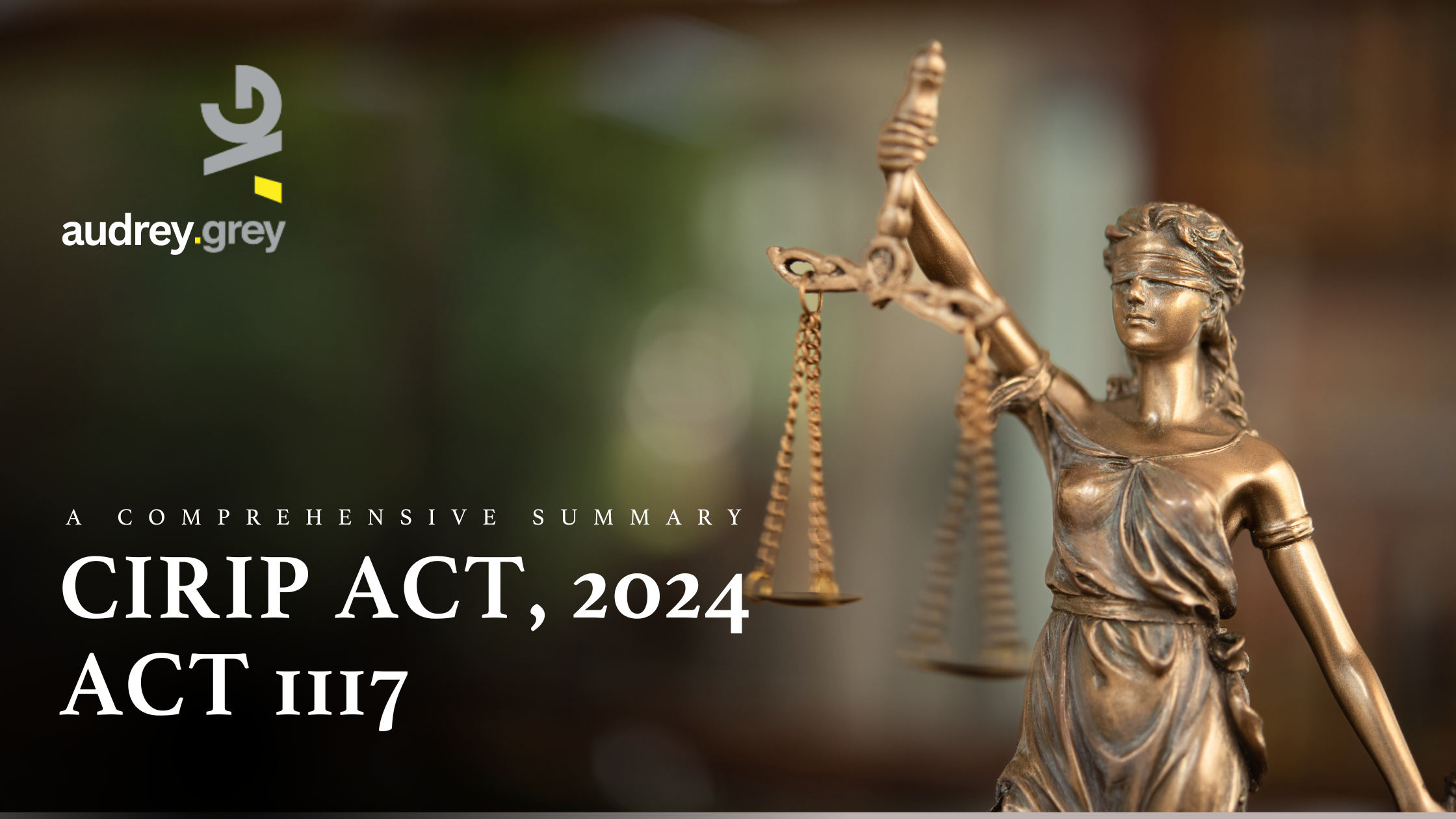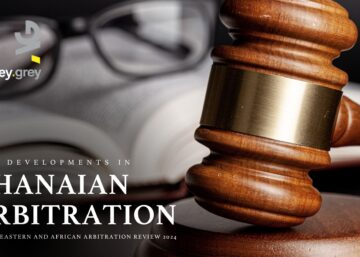Summary of the Chartered Institute of Restructuring and Insolvency Practitioners, Ghana Act, 2024 (Act 1117)
Introduction
The Chartered Institute of Restructuring and Insolvency Practitioners, Ghana, 2024 (Act 1117) marks a significant advancement in the regulation and professionalism of insolvency practices in Ghana. Assented to on July 26, 2024, this Act aims to establish a formalized Institute dedicated to the education, training, and ethical standards of insolvency practitioners in Ghana. Given the complexities of today’s business environment and the increasing prevalence of financial distress among companies, the demand for skilled professionals capable of managing restructuring and insolvency situations has never been more critical. The Act reflects a commitment to elevating standards within the profession and ensuring practitioners are equipped to navigate these challenging scenarios effectively.
Establishment of the Chartered Institute of Restructuring and Insolvency Practitioners, Ghana
The Act formally establishes the Chartered Institute of Restructuring and Insolvency Practitioners, Ghana, as the principal regulatory body overseeing the insolvency and restructuring profession, to replace GARIA. This Institute is mandated to do the following, among other things:
- Oversee the professional development and ethical conduct of insolvency practitioners, including drafting and implementing a code of ethics for insolvency practitioners by 24 September 2024,
- Educate and examine upcoming insolvency practitioners,
- Maintain a register of insolvency practitioners to promote adherence to high standards of practice across the industry.
- Publish the Ghana Insolvency and Restructuring Journal periodically and encourage members to also publish books and periodicals privately on insolvency and restructuring.
- Collaborate with the Insolvency Services Division (ISD) of the Office of the Registrar of Companies (ORC)
- Ensure Continuous Professional Development of Insolvency Practitioners
The primary objectives of the institute are to promote the education, training, research and certification of insolvency practitioners. It also strives to promote law reform, and effective business rescue measures, instil and maintain high professional standards, and enhance public confidence and trust in insolvency practice across Ghana.
Governance Structure of the Chartered Institute of Restructuring and Insolvency Practitioners
The Institute is governed by a council made up of the president of the Institute, the vice president of the Institute, the Registrar of Companies, the CEO of the Institute, three members elected by the institute, one of whom must be a woman, and one representative from each of the following organisations:
- State Interests and Governance Authority
- Insolvency Services Division of the ORC
- Private Enterprise Federation
- The Chartered Institute of Accountants
- The Chartered Institute of Bankers
- The Ghana Bar Association
Each of these persons is to be appointed by the President of Ghana, under article 70 of the Constitution. The Council has general oversight over the institute and its staff. All members of the Council, except the CEO, would remain in office for a term of 3 years. The term may be renewed once only. They are held to high ethical standards including a requirement to ensure punctual attendance at meetings and to avoid conflict of interest. The Council also has 2 sub-committees: the Public Insolvency Supervisory Committee and the Disciplinary Committee, to ensure that practitioners comply with the standards of professionalism in insolvency practice.
Membership of CIRIP and Certification
The Act delineates several categories of members to accommodate different levels of experience and expertise. A robust certification process ensures that only qualified professionals are admitted to the Institute, with mechanisms in place for suspending or revoking membership in cases of professional misconduct. Below are the various categories of members:
- Student member:
Student membership is accessible to individuals who meet the requisite educational requirements and register for the Institute’s examinations.
- Associate member:
Associate members, while required to pass the insolvency examination, may lack the practical experience necessary for full membership.
- Full member:
Full members must pass the Institute’s examination and demonstrate requisite years of professional experience to qualify for full membership. By law, these persons must also be qualified as lawyers, accountants, or bankers.
- Fellows:
The designation of Fellow is reserved for full members with at least ten years of service and significant contributions to the profession, recognizing their leadership and expertise in the field.
- Honorary member:
Honorary membership acknowledges distinguished individuals for their exceptional service to insolvency practice in Ghana.
- Firm members:
Firm membership is available to corporate entities actively engaged in restructuring or insolvency activities.
Member Registration
Typically, any person who qualifies to be a member of any of the categories of members above may register as a member of the institute by applying and paying the requisite fees. Each applicant is subjected to a thorough due diligence process conducted by the Council. Once approved, the Institute issues a registration certificate, formally acknowledging the applicant’s membership status and eligibility to practice. There are however certain persons who are disqualified from becoming members:
- A person convicted of a crime such as fraud, high treason, or any other offence involving dishonesty.
- A person of unsound mind
- An undischarged bankrupt
- A member who is found guilty of professional misconduct by the professional body they belong to
- A person disqualified under section 177 of the Companies Act, 2019 (Act 992)
Public Practice of Insolvency under the CIRIP Act
One of the key changes the CIRIP Act brings is that it redefines who an insolvency practitioner is. Section 30(1) amends section 155 of Act 1015 – in addition to being a Chartered Banker, Chartered Accountant, or a Lawyer, who is also licensed by the ORC, an insolvency practitioner must also be a full member of the Institute. This is a fundamental requirement for the public practice of insolvency. Public practice of insolvency is defined as
- Providing insolvency-related services for remuneration, either independently or in partnership with others.
- Offering or performing the services of a
- trustee in bankruptcy under the Insolvency Act, 2006 (Act 708),
- a receiver under the Companies Act,
- an administrator under the Corporate Insolvency and Restructuring Act, 2020 (Act 1015)
- a restructuring officer under the Corporate Insolvency and Restructuring Act, 2020 (Act 1015)
- a liquidator under the Corporate Insolvency and Restructuring Act, 2020 (Act 1015)
Acting in any of these capacities or offering such services without the necessary qualification, registration, or licensing is a professional misconduct.
Regulations for Public Practice
Licensing
Under the Act, ORC licenses insolvency practitioners on the recommendation of the Institute. The ORC has 30 days upon the receipt of an application for a license, to grant or refuse the application. A license granted expires on 31 December of the year of issue. It may be renewed at a fee and subject to compliance with continuous professional development and the recommendation of the Council. The license must be displayed conspicuously at the place of practice.
A practitioner’s license may be suspended or revoked where that person…
- is found guilty of professional misconduct,
- is convicted of an offence involving dishonesty,
- is declared to be of unsound mind,
- is an undischarged bankrupt,
- obtained the licence through fraud, misrepresentation or concealment of a material fact,
- is disqualified from acting as a director under the Companies Act, 2019 (Act 992) or any other relevant enactment,
- ceases to be a member of the Institute, or
- commits an offence under the CIRIP Act.
Dealing with Clients
Insolvency practitioners must let their clients know the name of their firm, its registered address, the practitioner’s first and last name, his/her nationality, and the full names of the registered sole proprietor or partners.
Practitioners are also required to have professional indemnity insurance. However, an insolvency practitioner can only be held liable for acts done intentionally or negligently.
Administration and Financial Provisions
To promote effective governance, the Act incorporates a range of administrative and financial provisions. It establishes an Internal Audit Unit to oversee the financial and operational activities of the Institute, ensuring transparency and accountability in all dealings. The roles and responsibilities of key officers, including the Chief Executive Officer, are clearly defined to promote effective management and operational efficiency. The financial provisions delineate the Institute’s funding sources, financial management protocols, and auditing processes, ensuring that all financial activities adhere to the highest standards of accountability.
Miscellaneous Provisions
The Act includes several miscellaneous provisions that enhance the regulatory framework governing the profession. For instance, individuals seeking to provide training in insolvency and restructuring are required to register with the Institute, ensuring that all educational offerings are aligned with professional standards. The Act mandates the use of a common seal, which is managed by the Chief Executive Officer, to authenticate official documents and correspondence. Furthermore, it makes false declarations in membership applications, misrepresentation of professional titles, and engaging in practice without the requisite license, criminal. These offences carry substantial penalties, including fines ranging from 1,000 to 5,000 penalty units or imprisonment for two to five years, or both.
Conclusion
The Chartered Institute of Restructuring and Insolvency Practitioners, Ghana Act 2024 represents a landmark development in insolvency and restructuring in Ghana. By instituting a structured framework for training, certification, and public practice, the Act seeks to professionalize the industry, enhance ethical standards, and protect the interests of the public and businesses facing financial difficulties. Through clear governance structures, robust membership regulations, and comprehensive disciplinary mechanisms, this Act provides the foundation for a more efficient and trustworthy insolvency practice in Ghana, ultimately contributing to the stability and growth of the nation’s economy.
You can download the full article here



